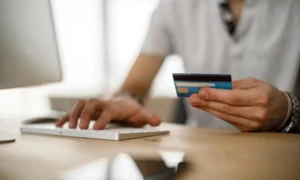Security is gaining importance as worldwide instantaneous payments are becoming increasingly demanded. Global money transfers in real time create a possibility-risk situation. To the people, entrepreneurs, and financial organizations, the dilemma is how to balance between speed and safety.
It is important to familiarize yourself with potential risks and the remedies to address such issues in order to avail a secure and smooth payment opportunity.
Common Security Challenges
1. Real-Time Fraud Risks
Speed is what can be alluring about instant payments, but it can also be a point of failure. A payment is irreversible. Fraudulent transactions cannot be detected and prevented within a short time, as traditional systems provide an opportunity to postpone or reverse the transactions.
RTS payment systems are generally vulnerable to attacks by cybercriminals and implement common strategies such as phishing and social engineering, as well as account hijacking.
2. Weak Authentication
There is also a chance that platforms can be convenient but lose proper user authentication. Light passwords, the absence of two-factor authentication (2FA), and the inefficiency of the identity verification will expose the user to the risk of unauthorized access.
3. Regulatory Compliance
Instant international payments are expected to meet a diversity of anti-money laundering (AML) and know your customer (KYC) regulations. Different local rules may make it more difficult to be compliant, particularly on smaller platforms/businesses spread across different international locations.
4. Data Privacy and Cross-Border Transmission
Sending money abroad involves the transmission of sensitive user and financial information across borders. Unless there are appropriate encryption and storage standards, this information can fall prey to interception, theft, or misuse.
Solutions: How to Overcome Security Challenges
1. Real-Time Monitoring and AI-Based Fraud Detection
Fintech firms and processing companies are increasingly employing machine learning and AI as a method to monitor transactions on a real-time basis. Such systems identify abnormal patterns, mark suspicious activity, and prevent high-risk transactions from being performed.
This method will allow for preventing fraud with a proactive approach, even when things are moving at a rapid pace.
2. Strong User Authentication
There is the implementation of multi-factor authentication (MFA) and biometric authentication (fingerprint scan, face ID). Authenticity. In many current systems, users can be required to validate transactions through SMS text messages, app authentication requests, or security tokens.
Such procedures can take a few seconds more–but will sharply diminish the chances of unauthorized access.
3. End-to-End Encryption
Highest quality technical systems that involve instant payments employ end-to-end encryption and TLS (Transport Layer Security) to secure data in the exchange process. The implication of this is that even in the case some data is intercepted, it remains unreadable to an outsider.
The protection of the data that is in transit or at rest is secured with APIs, tokenization, and encrypted databases.
4. Transparent Compliance Protocols
The reputable payment platforms adopt international regulations and post their AML/KYC on their websites. This instils confidence in the users that the system is not exposed to unlawful actions. The fact that their providers will be licensed in jurisdictions that are of most interest to businesses, including FCA, MAS, or FinCEN, conjures up an added degree of regulatory certainty.
Final Thoughts: Build Security Into Speed
Fast global payments have become a convenient option that has revolutionized the way people send payments, but this should not be done at the detriment of security. Through the investment in technologies, protocols, and educational efforts, businesses and individuals can have the best of both sides: smooth, fast payments and peace of mind.
Security is not a feature; it is an issue that has to be taken seriously. In the busy world of on-demand payments, it is more important than ever.



































